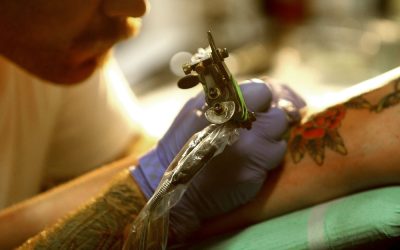However, research from 2014 tells us that genetics might play a part in whether some people develop NPD. It’s worth noting that the DSM-5-TR doesn’t use the term “alcoholism,” but the term is still used colloquially to refer to AUD. In order to get a diagnosis of AUD, you have to fit certain diagnostic criteria as set out in the Diagnostic and Statistical Manual of Mental Disorders, 5th edition, Text Revision (DSM-5-TR). Someone who’s narcissistic might be self-absorbed and have an inflated sense of self-importance.
Understanding Narcissism and Alcoholism

However, it’s certainly possible for someone to exhibit narcissistic tendencies but not meet the NPD diagnostic criteria, says Sarah Lyter, LCPC, MA, a Charlie Health Clinical Supervisor. Alcohol serves as a tool for covert narcissists to achieve goals they would otherwise avoid, transforming them into more grandiose versions of themselves. When intoxicated, they shed their modesty and humility, revealing a more antisocial and psychopathic persona. This transformation is often sought deliberately, as alcohol provides them with the courage to pursue desires and engage in reckless behavior, leading to a cycle of habituation and addiction.

Spending Addiction
Vulnerable narcissism and addiction are intertwined, as individuals may turn to substances as a way to cope with their unstable self-esteem. With AUD, a person’s behavior may change depending on whether they are sober or not. An individual with NPD will display a consistent pattern of narcissistic behavior. NPD is a personality disorder, whereas AUD is a substance use disorder.
- All other people are Neanderthals and the narcissist is the homo sapiens.
- Female narcissists may become more insecure and defensive about their appearance, accomplishments, and relationships as they age.
- These and other narcissistic behaviors can make it very challenging for people with NPD to have healthy relationships.
- Rooted in the term “narcissus” from Greek mythology, where Narcissus fell in love with his reflection, it represents an excessive self-focus and inflated sense of self-importance.
- Substance use disorders like AUD are characterized by mental and physical addiction.
Why Do Narcissists Always Play the Victim?
Understanding the ways in which narcissists get worse with age can help shed light on their struggles, the impacts on those around them, and the potential treatment options available. Remember that these signs are general indicators, and everyone’s circumstances differ. If you feel unsafe, unsupported, or believe your safety is compromised, leave your partner to avoid further issues. The underlying cause of each is sometimes not the same, but the behaviors can seem very similar.
Medical supervision covert narcissist alcoholic is crucial during alcohol detoxification to ensure safety and manage potentially severe withdrawal symptoms. Medications may be prescribed to manage alcohol cravings and withdrawal symptoms. Both disorders can result in mood swings, but the triggers differ.
Coping with Declining Abilities

This loss of control can be particularly difficult for aging narcissists who have been used to feeling superior in most areas of their lives. Losing their physical abilities, marijuana addiction retiring, and facing a loss of purpose can lead to increased challenges in their relationships with others. You may also experience heightened delusions, paranoia, and isolation, making it challenging to maintain healthy relationships. Aging is a natural process that affects everyone, but for narcissists, growing older can exacerbate their already challenging personality traits. If you think your partner’s behavior and tendencies have changed suddenly, you can learn about their conditions to understand their struggles and behaviors.
The Narcissist Alcoholic: Understanding the Vicious Cycle and How To Find Help
Since narcissists are very grandiose, they may be more likely to engage in risky behavior, whether that’s excessive substance use itself or reckless behavior while drinking, says Lyter. In their grandiosity, a narcissist with AUD might even drink excessively to show off, seem “cool,” or try to impress others. These individuals are very outwardly grandiose, arrogant, self-absorbed, and attention-seeking. Because of this, a grandiose narcissist is often the easiest to spot. Further research into the causes of AUD might help experts develop more treatment options.

0 hozzászólás